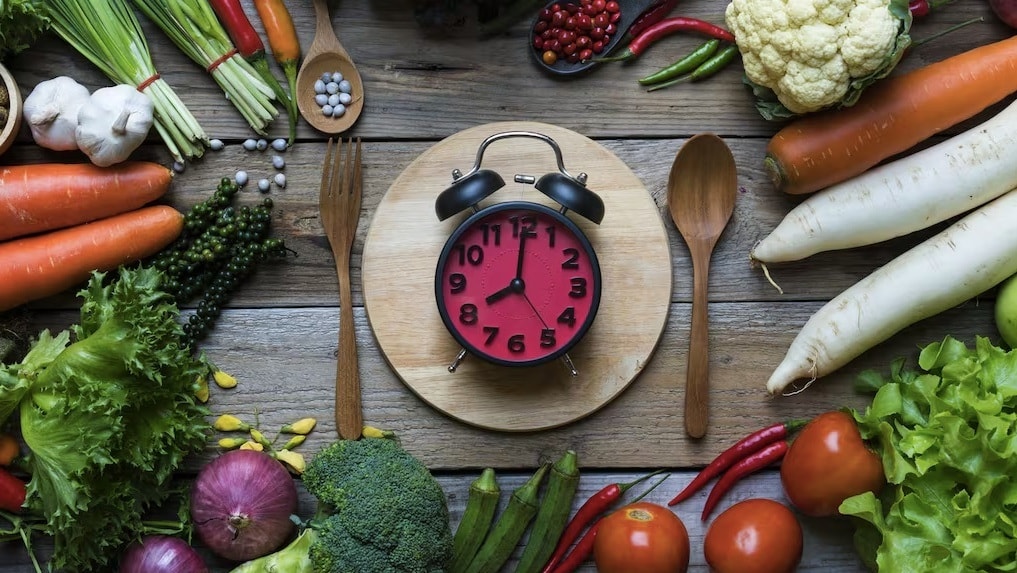The best time to have dinner.
The timing of our meals affects our overall health. Research shows that eating at the right times is beneficial for health and improves metabolism.
According toMarketingFocus on eating vegetables, carbohydrates, protein, and all the nutrients that benefit overall health, but you can optimize your dinner by eating at a better time. What you eat is important, but when you eat is also important.
Ideal time slot
Most scientists agree that eating between 5 PM and 7 PM is ideal. The later it gets, the less food you should consume.

The time we eat dinner affects our overall health. Photo: The Irish Times
A study published in Cell Metabolism found that people who ate dinner at 5 p.m. burned 60 more calories than those who ate later. Participants who ate later also stored different types of fat and experienced higher levels of hunger.
This means, according to research, 5 pm is the best time for dinner if you're trying to lose weight, but eating at this time also has other benefits.
Researchers have found that eating earlier allows us to regulate blood sugar better and improve fat metabolism, a factor in fat storage. Eating an early and light dinner improves sleep, enhances digestion, boosts metabolism, and lowers blood pressure.
How to determine the best time for dinner.
If you can barely eat at 5 PM, don't worry. You should eat dinner 3-4 hours before bedtime to ensure good health, as digestion slows down towards the end of the day.
According tofine ClinicHaving a three-hour window before bedtime can improve your sleep and digestion. So, if you don't go to bed before 10 PM, eat at 7 PM.
This is especially true for people trying to lose weight or who have certain health conditions. For those with gastroesophageal reflux disease (GERD), eating earlier can reduce the likelihood of food refluxing from the stomach into the esophagus.
According toMayo ClinicYou should also avoid eating too early, as going to bed hungry can disrupt sleep quality. To avoid stomach rumbling and hunger pangs in bed, try to eat a slightly larger breakfast and lunch than dinner.
The best time to eat will ultimately vary from person to person, depending on their schedule and sleep habits, but consistency is key to improving overall health.
Maintaining a consistent eating schedule day after day is associated with weight loss, increased energy, and reduced metabolic risk factors for chronic disease.
The pros and cons of eating dinner later.
Eating dinner earlier is better for you, but that doesn't mean eating a little later has no benefit. Eating closer to bedtime can be helpful when you're trying to prevent nighttime hypoglycemia.
Certain hormones and amino acids in food can help you feel sleepy if you eat them before bed. Some foods contain tryptophan, serotonin, or melatonin, which can aid in falling asleep, but eating large amounts close to bedtime can disrupt sleep and may not be good for your overall health.
Ultimately, eating too late has more disadvantages than advantages.fine ClinicEating too close to bedtime (less than 3 hours before sleep) can lead to weight gain because the calories are stored as fat while you sleep, instead of being burned.
Studies show that eating too close to bedtime reduces glucose tolerance and increases the risk of obesity by five times.
However, don't let this deter you from eating dinner, even if you miss the ideal time to eat. Eating dinner later or right before bed is better than not eating at all, especially if you're hungry or haven't eaten enough during the day.
Even while sleeping, your body still needs energy to function, as it's recovering from the previous day. When you go to bed hungry, your body lacks the necessary calories to replenish that energy. This causes your body to retain carbohydrates and fats instead of using them as fuel.
Is a light or larger dinner better?
Like most nutritional advice, whether to eat a lighter or larger dinner largely depends on the individual. Some patients with acid reflux have more difficulty eating a larger dinner. However, some athletes enjoy and can tolerate a larger dinner.
Generally, it's best to eat a lighter dinner and more substantial meals throughout the day. Your metabolic rate (how your body processes food, nutrients, and calories) usually peaks around midday. You should eat a larger breakfast and lunch to avoid late-night snacking.
A light dinner is beneficial because it can improve your blood pressure, sleep quality, digestion, and metabolism.



